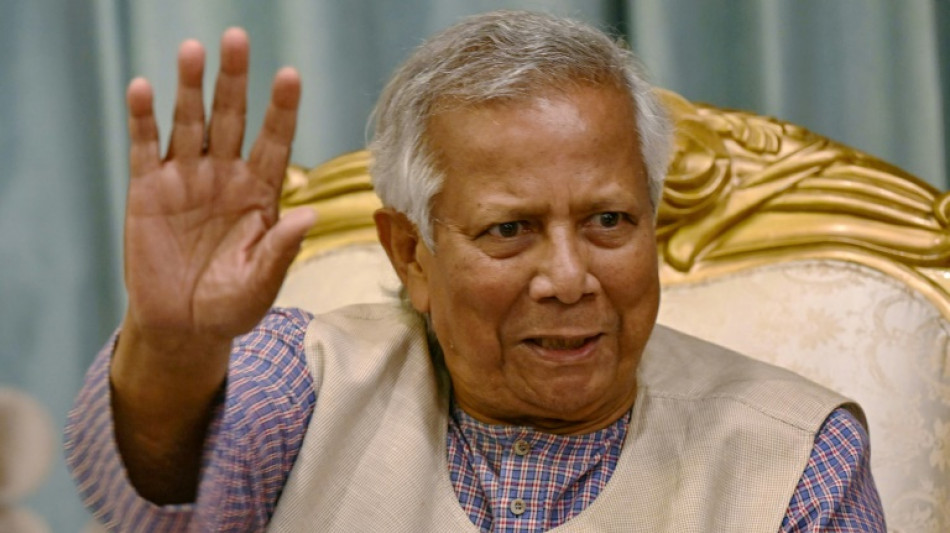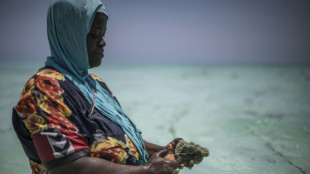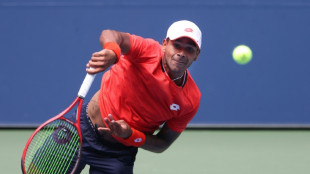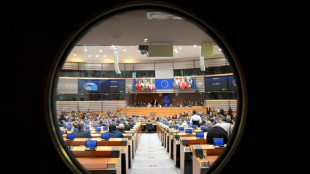

Bangladesh's Yunus seeks unity with fresh political talks
Bangladesh's interim leader will meet multiple parties on Sunday in marathon talks as he seeks to build unity and calm intense political power struggles, party leaders and officials said.
Muhammad Yunus, the 84-year-old Nobel Peace Prize winner who leads the caretaker government as its chief adviser until elections are held, has called for rival parties to give him their full support.
The South Asian nation of around 170 million people has been in political turmoil since former prime minister Sheikh Hasina was ousted by a student-led revolt in August 2024, ending her iron-fisted rule of 15 years.
The talks come after meetings that stretched late into Saturday evening with major political parties, including those who have protested against the government this month.
"Chief adviser professor Muhammad Yunus will meet the leaders of several parties on Sunday," his press secretary Shafiqul Alam told AFP.
There are 54 registered political parties in Bangladesh -- not including the now-banned Awami League of fugitive former leader Hasina.
Alam did not specify how many parties were invited to this round of talks.
- 'Ongoing crisis' -
Mamunul Haque, leader of the Islamist Khelafat-e-Majlish party, said he was attending discussions expected to focus on "the ongoing crisis".
Zonayed Saki of the liberal Ganosamhati Andolon party said he was also attending.
After a week of escalation during which rival parties protested on the streets of the capital Dhaka, the government led by Yunus warned on Saturday that political power struggles risked jeopardising gains that have been made.
"Broader unity is essential to maintain national stability, organise free and fair elections, justice, and reform, and permanently prevent the return of authoritarianism in the country," it said in a statement.
Microfinance pioneer Yunus, who returned from exile at the behest of protesters in August 2024, says he has a duty to implement democratic reforms before elections he has vowed will take place by June 2026 at the latest.
The caretaker government has formed multiple reform commissions providing a long list of recommendations -- and is now seeking the backing of political parties.
Yunus last held an all-party meeting -- to discuss efforts to overhaul Bangladesh's democratic system -- on February 15, and some parties cited frustration at the lack of contact.
But on Saturday, the government warned that it had faced "unreasonable demands, deliberately provocative and jurisdictionally overreaching statements", which it said had been "continuously obstructing" its work.
Sources in his office and a key political ally said on Thursday that Yunus had threatened to quit, but his cabinet said he would not step down early.
Yunus on Saturday met with the the key Bangladesh Nationalist Party (BNP), seen as the election front-runners, who are pushing hard for polls to be held by December.
According to Bangladeshi media and military sources, army chief General Waker-Uz-Zaman also said this week that elections should be held by December, aligning with BNP demands.
Yunus also met with leaders of Jamaat-e-Islami, the Muslim-majority nation's largest Islamist party, and the National Citizen Party (NCP) made up of many students who spearheaded the uprising that ended Hasina's rule.
NCP leader Nahid Islam warned on Saturday that rival parties were pushing for swift elections to skip reforms and "assume power", and that he believed there were "indications" that a "military-backed government could re-emerge".
W.Herrera--GBA



